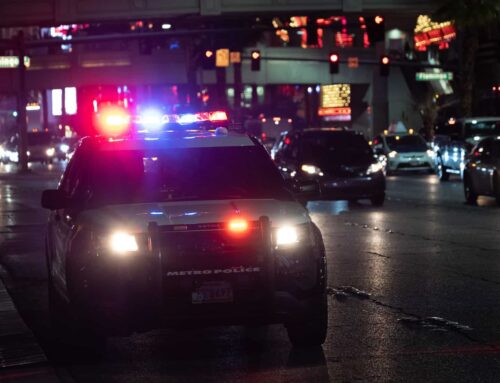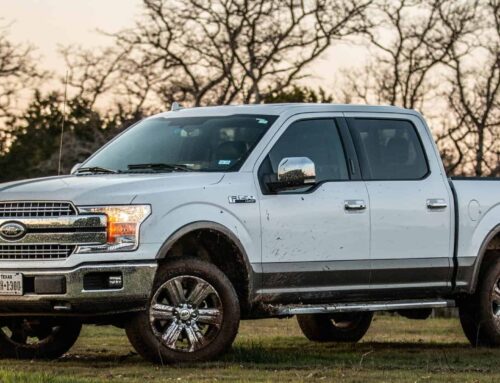Filing SR22 certificate on parents insurance
Filing SR22 certificate on parents insurance – Sometimes a person’s license may be suspended and they do not have a car. This would happen if you borrowed a car from a friend or family and while using it violated a traffic law. Or one may at one point have had a car, got their license suspended, and before they could have it reinstated, sold off the car. Also, you could be a child, living at home with your parents, with a valid driver’s license and occasionally borrow your parent’s car and on one of those occasions violated a traffic law and now the court requires you to get a SR22. The question then becomes, how can one get this document? Is it even possible? If not, what other options are available for me?
In relation to the traffic laws who is a child?
In the eyes of law, a child is a person who when they committed a traffic offense was not yet 18 years and had not attained 21 years when they were arraigned in a court of law. For the purpose of this article we shall treat the person seeking an SR22 on their parents insurance as child as defined above. Generally the law restricts the jailing of children when it comes to traffic laws, however, the circumstances surrounding each case must be thoroughly scrutinized a proper judgment arrived at. The issue of SR22 and children sometimes transcends beyond the obvious issues like law applications and cost to other more far reaching questions like morals and upbringing of a child. SR22 on children or minors therefore can be mind boggling to everyone.
Understand SR22 requirements
Before one can start interrogating if a child can file on parents insurance, one needs to understand what it is and how it works.
If you have committed a traffic offense, have been arraigned in court and have been convicted, the court is at discretion to hand you whatever penalty it deems fit for the offense. In its judgment, court may decide to ask you to acquire a SR22 for whatever reason. A SR22 requirement is a document that is written up by your auto insurance, giving a guarantee that if you are ever in an accident or incident, you will be able to handle any financial obligations that may arise from the said incident. This document must be presented whenever needed to a traffic officer or any other person who may have an interest in its existence, as and when it is requested. If one of the penalties you have suffered as a result of your traffic offense was a license suspension (which is very common), more often than not, you must present a SR22 in order to lift your suspension.
What type of offenses may lead you to requiring a SR22?
There are many types of offense one may commit that will cause them to be given an SR22 requirement by court. Namely:
- DWI/DUI- if you are caught driving intoxicated, either by alcohol or other controlled substances, court may require you to acquire a SR22. Also, the chance that your license may be suspended further increases your need to get a SR22 in order to get it reinstated.
- Underage DUI will automatically require a SR22. This is because, while courts may be a little lenient on adults, they do not take lightly DUIs committed by minors. Some states have a zero tolerance law, which makes it very hard for minors to get away with a mere slap on the least when they have DUI issues.
- If you are involved in an accident and flee the accident scene, whether you were the guilty party or not, court will not take your decision to run easily. Naturally just that act puts you in bad light and you will be required to get a SR22.
- Sometimes, when you have been committing too many traffic offenses and have garnered yourself many points with the DMV, court may deem it necessary to take extra caution around you.
- Sometimes, you may get of easy. For instance when you successfully plea bargain from a DUI to a wet reckless. However, subsequent traffic offense may automatically change the status of the first plea. This turn of events can easily get you slapped with a SR22 requirement.
- If you are into street racing be warned once convicted you will not get off easy either. Most states strictly forbid street racing and your license may be suspended as a result of your activities.
- If you are caught driving an uninsured vehicle and have been involved in an accident, that is definitely a reason to get a SR22 requirement.
- Sometimes, when you refuse to submit to a chemical test, your license may be suspended or the court may expressly require you to produce a SR22. This is however unique to minors because it is compulsory for them.
- If you are involved in a vehicular manslaughter: Whether negligently or not, it is more likely than not that the courts will require a SR22 from you. While the justice presiding over your case may not be at liberty to carry out some sentences on you as directed by the Children (Criminal Proceedings) Act 1987, an SR22 is not one of the penalties they are forbidden to institute against you.
Does non-owner SR22 apply for a child?
As long as a person is licensed to drive, it means then they are responsible for their driving habits on the road. In case of offenses, they will face consequences as set out in the traffic or penal codes. Therefore, having a SR22 requirement should not surprise parents if their children should be slapped with one. Many times, parents have found themselves seeking non-owner SR22 for their children who have had a traffic altercation and have been ordered to get a SR22 by courts. The question is; does it work? The answer is no. Many times people confuse non-owner SR22 as something they can apply for when they have a child who basically depends on them and lives with them when the said child has been required to acquire a SR22. For a child who is above the age of majority and occasionally borrows the car from his parents, this can be treated as a non-owner SR22, but for a teenager who uses the parents car often, it is treated differently in that, the said child must be added in the insurance policy of their parent. This therefore means that when they are required to acquire a SR22, the same regulations that apply to owners will apply to the said child.
Why the confusion?
The reason people easily confuse the non-owner SR22 requirement to be an option they can take when they have been using their parent’s vehicles is quite simple; they do not own the car. However a non-owner SR22 requirement will be given to a person who is not regularly using a vehicle in a household, has no car and can borrow a vehicle when they need one. This would however not apply to a child who is constantly using the vehicle because the obvious assumption is they can use the car anytime and as much as they wish.
How does a non-owner SR22 work?
- A non-owner SR22 is basically a secondary insurance policy and generally will cover the minimum financial requirements one would need to cover in case of an accident. This makes sense because generally, borrowed vehicles never belong to a person.
- Secondly this policy will only come in as a secondary cover. This essentially means that the primary cover (the owners cover) has first to take effect before the non-owner can be used. For instance, if you had a borrowed car and got into an accident, the owner cannot then demand of you to use your policy to cover the accident costs. Theirs will first be used, and if it does not cover all costs, then that is when the secondary cover is used.
- The law expressly says that non-owner insurance cannot be used to cover teenagers living with their parents and regularly uses the family car as an automotive to regular insurance. The logic behind this rule is simple. The fact that the child did not pay for the vehicle does not mean he is not practically its owner. If they are using the vehicle, then due care while driving the vehicle is important. The act of driving the car regularly while living in the family home makes him privy to the insurance policy as a co-owner.
- Non-owner SR22 requirements are generally written to cover the least possible liability in the state within which the person seeking such a cover resides. What this mean is: if you have a car and the state in which you reside allows a minimum cover of $1,000 , your friend then comes along borrows your car and crashes. If this friend had a non-owner SR22 requirement, chances are, he will only be covered to a tune of $1,000. If your accident will cost you five thousand dollars in repairs and you probably had covered up to $2,000 worth of damages, your friend can only choose to top up the difference of $2,000 out of the goodness of his heart. The law does not enforce payment of costs that are beyond the stipulated amounts within the law.
- It is interesting to note though that non-owner insurance covers can be converted into owed operator For instance. If you have a child, who is over the age of majority, does not live with you, has a SR22 on his records, and borrows your car sometimes, they can successfully use a non-owner SR22. The important thing being, that they are not living in the household and are somewhat independent. What happens then if they want to use the vehicle more and you feel they should share the burden? By speaking to your insurance agent their non-owner SR22 can quickly be converted into an owner operated policy. Sort of co-owning the car with you.
Note: Most people will want to cheat or beat the law by trying to file a SR22 for their children on their insurance. However, unless your insurer is a crook, they will inform you that it is impossible. The motivation behind this move is usually the expenses associated with adding another person to an insurance policy. However, it is the only way your child can get a SR22 without further breaking the law.
Does this mean then a non-owner SR22 will not work for your child?
As stated earlier, it will not work at all. Your insurance company will require you to add your child in your insurance policy, and then they can get the SR22. As applies with all other situations that require a SR22, your child will be required to get an SR22 for DUI, speeding over and above the given speed limits in a certain state, too many traffic violations, vehicular manslaughter, driving without insurance and a suspension of his/her driving license for whatever reason. It is therefore wise to advise them that they must take utmost care when on the roads to avoid these occurrences. Remember, adding a person to the policy automatically raises the insurance premiums. You therefore do not wish to have to pay that cost and have to add the extra one that comes with raised premiums due to a SR22 requirement.
SR22 requirement regulations, processes and all the other little issues that are involved with acquiring one can be mind boggling. Little wonder even some auto companies will not give a SR22. Of course, there are also those that are simply afraid of what you may be morphing to, and would rather run than stick with you. Others will also simply not know exactly what the law says about SR22 and therefore you may find yourself spending much more than you had anticipated.
That is why you should contact us. Because of our years in high risk insurance, we have developed a highly effective and efficient system to ensure that your high risk issue is our issue before it gets to you. We have the mechanisms, the knowledge and the willingness to work with you and for you. The fact that we are a one stop shop for all your high risk insurance should put your fears to rest and let, take a breather and let us do what we know how to do best. Simply by filling in the form presented, you will have someone talk and sort out your issue, without much stress on your part.
Minors, teenagers and SR22 requirements
Traffic violations are not something you want on your records. In some states, some violations may last a lifetime. While getting a license is not hard even for teenagers and minors, disciplined driving may sometimes come with years of experience. Young drivers therefore must take extreme caution when driving. Some states have some ‘tailor made laws specially designed to discourage minors from committing traffic offenses. Also the thought of placing SR22 requirement burdens on parents simply does not sound right. Therefore, if you are a minor in your state of residence, you need to remember that you will just be causing undue trouble to your guardian or parents if you are caught violating traffic laws. Also remember, some states do not have ‘look back’ periods, and what you may think was a small stupid error may carry through time and may turn out to be a very grave mistake you did in your youth. Simply put; discipline yourself as a driver. Or you can simply start working in order to help your parents shoulder the insurance premiums that are definitely going to rocket as a result of your SR22 requirement.
If you have questions, don’t hesitate to call: (855) 438-7353. One of our licensed agents will help you right away.






